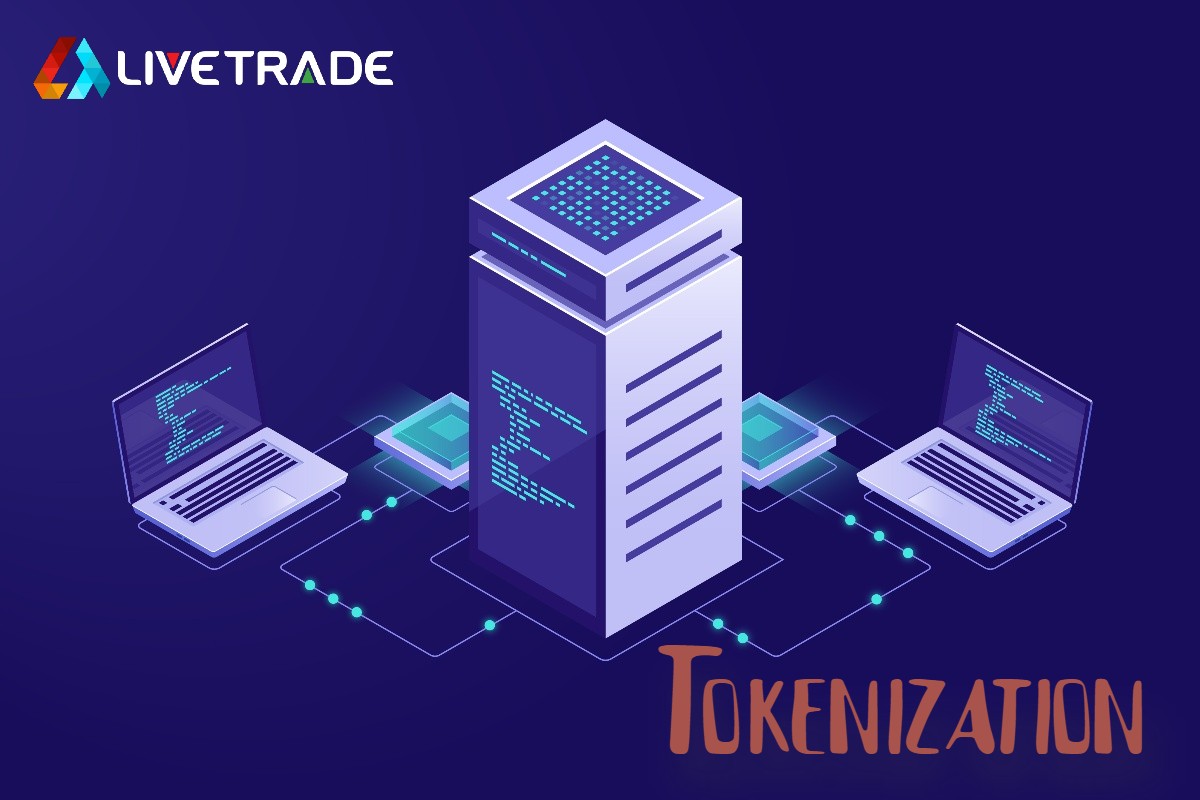The emergence of tokenization can change the fundamental way we trade, invest and own assets. Everything and anything can be turned into digital tokens nowadays, from real estate property, art work, company shares to precious metal. The act of tokenizing assets threatens to disrupt many industries, especially the financial one, and those who refuse to see this will be left behind.
So, what is tokenization?
The tokenization of assets refers to the digitalization of real-world assets, creating a token that holds value traceable to a house, a car, a painting or any physical property using blockchain technology.
An Example explaining Asset Tokenization
Let’s forget smart contracts and blockchain for a while. Suppose you want to invest in a real estate property, but you have only $5000 for early investment. You may wish to start with small and raise investment moderately. For instance, you want to invest a few thousand every two or three months. It might seem an awkward thing to do in the real estate industry. People have not been able to buy four or five square meters in an apartment.
Now, reverse the situation. You have an apartment, and you quickly need some money. The value of your apartment is $200,000, but you only need $30,000. Do you know how you can use that property to get the money you need?
Here tokenization comes into the picture. Tokenization is also defined as the method to convert ownership rights in an asset into a digital token. Your apartment worth $200,000 can be converted into 200,000 tokens, where each token is equal to 0.0005% share of the apartment. Then, tokens are issued on any blockchain platform that can support smart contracts, for example, Ethereum. When a user buys one token, it means they buy 0.0005% of the asset’s ownership. If someone buys 80,000 tokens, they own 40% of the asset. If they buy all 200,000 tokens, they become 100% owner of that property.
Blockchain is an immutable public ledger that ensures once you purchase tokens, you cannot delete the ownership, whether it is registered on the government-run registry or not. It is now clear why blockchain is implemented in such services. So, we took an asset, tokenized it and built its digital representation on the blockchain.
The benefits of a “token economy”
By greatly reducing friction involved in trading, transferring ownership, distributing asset’s value, tokenization is bringing great benefits for both investors and sellers:
No territorial barriers
An investor can invest in the property located in any part of the world without visiting there physically. Investment becomes secure, fast and easy with asset tokenization on the blockchain.
Elimination of middlemen
Trading of assets usually takes days to months to achieve a settlement. It involves external entities to validate the documentation of transactions and investor’s eligibility, which adds extra costs to the process. But, tokenization removes the need for intermediaries with blockchain’s ability to provide immutability and transparency.
Fractional Ownership
When assets are digitized, they become highly divisible. Thus, investors can invest in small percentages of tokenized assets. For example, you can buy only a 10% share of a tokenized real estate property. It dramatically removes the barriers for billions of investors to enter the market.
Greater liquidity
Bringing the investment process on the blockchain provides a low-friction environment. Asset tokenization enables the automated transfer of ownership while ensuring compliance. With reduced complexity and costs, tokenized assets present the possibility to invest with fiat money and P2P trading on regulated exchanges, which can improve liquidity.
Faster and cheaper transactions
Since the transaction and transfer of tokens are done with smart contracts, the exchange process is automated. The automation can reduce the burden associated with buying and selling, with no intermediaries required. As a result, it fastens the deal execution with lower transaction fees.
Broader Investor Base
Traditionally, the trading of real-world assets has a restriction on the level of fractionalization. But asset tokenization eliminates the limitation by making it possible to sell or buy tokens that represent fractions of ownership. It results in a broader investor base to participate in the investment process. Tokenization would open opportunities for a new set of investors and allow them to diversify their investment portfolio into assets that they could not afford previously.
Tokenization is a new step in the blockchain direction for the world economy, and it will bear great fruit if fully adopted to the finance system. However, there are challenges to overcome before this token economy can take off, such as there is no universal regulation for the creation and exchange of digital tokens, how will the link between real assets and tokens remain in time. It requires a lot of cooperated effort from all financial participants to move tokenization forward. It will take some time for this to happen, but when it does, only those who have prepared, planned for the adoption of tokenization will thrive.




